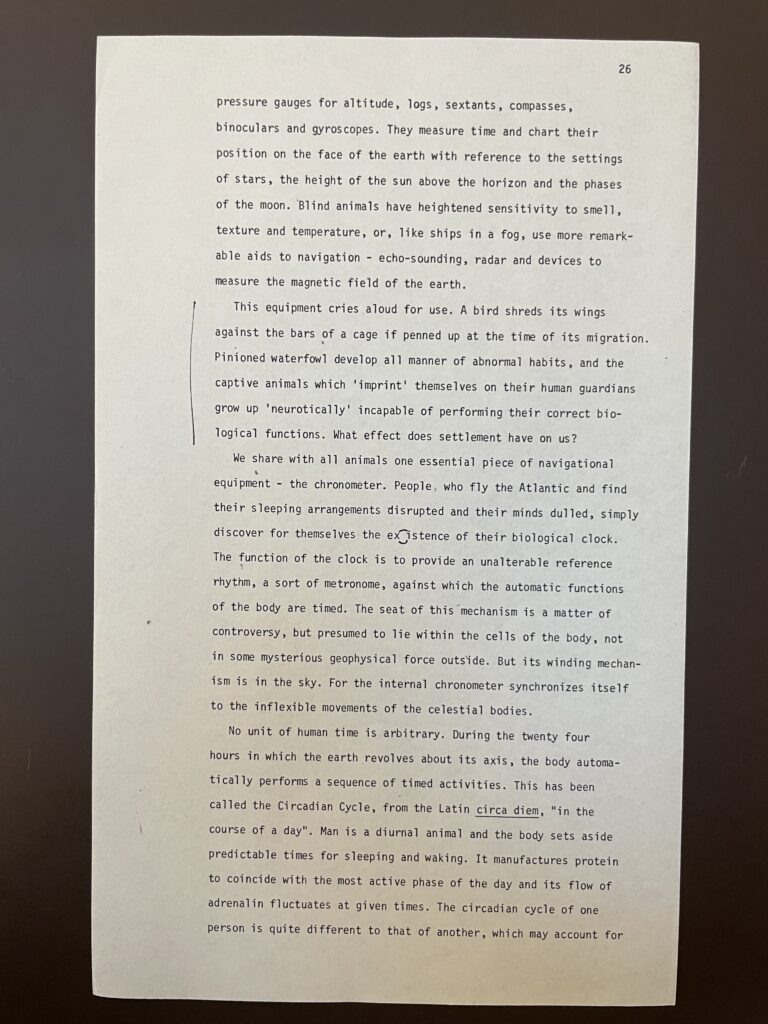The Nomadic Alternative – Page 26
The Nomadic Alternative
Page 26
pressure gauges for altitude, logs, sextants, compasses,
binoculars and gyroscopes. They measure time and chart their
position on the face of the earth with reference to the settings
of stars, the height of the sun above the horizon and the phases
of the moon. Blind animals have heightened sensitivity to smell,
texture and temperature, or, like ships in a fog, use more remark-
able aids to navigation – echo-sounding, radar and devices to
measure the magnetic field of the earth.
This equipment cries aloud for use. A bird shreds its wings
against the bars of a cage if penned up at the time of its migration.
Pinioned waterfowl develop all manner of abnormal habits, and the
captive animals which ‘imprint’ themselves on their human guardians
grow up ‘neurotically’ incapable of performing their correct bio-
logical functions. What effect does settlement have on us?
We share with all animals one essential piece of navigational
equipment – the chronometer. People, who fly the Atlantic and find
their sleeping arrangements disrupted and their minds dulled, simply
discover for themselves the ex[illegible]tence of their biological clock.
The function of the clock is to provide an unalterable reference
rhythm, a sort of metronome, against which the automatic functions
of the body are timed. The seat of this mechanism is a matter of
controversy, but presumed to lie within the cells of the body, not
in some mysterious geophysical force outside. But its winding mechan-
ism is in the sky. For the internal chronometer synchronizes itself
to the inflexible movements of the celestial bodies.
No unit of human time is arbitrary. During the twenty four
hours in which the earth revolves about its axis, the body automa-
tically performs a sequence of timed activities. This has been
called the Circadian Cycle, from the Latin circa diem, “in the
course of a day”. Man is a diurnal animal and the body sets aside
predictable times for sleeping and waking. It manufactures protein
to coincide with the most active phase of the day and its flow of
adrenalin fluctuates at given times. The circadian cycle of one
person is quite different to that of another, which may account for
Editor's Note: This text has been transcribed automatically and likely has errors. if you would like to contribute by submitting a corrected transcription.
